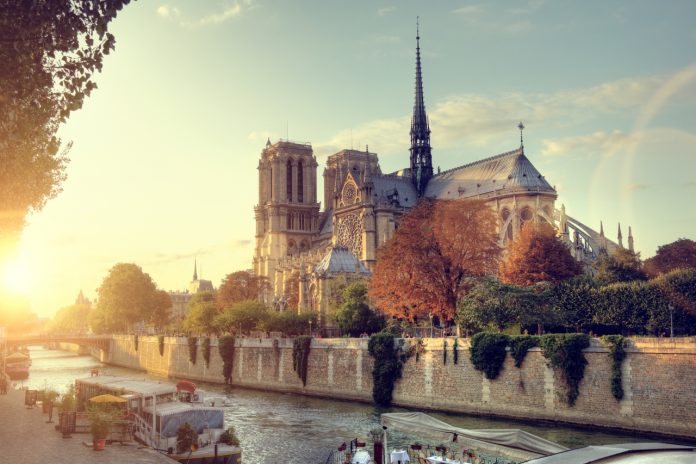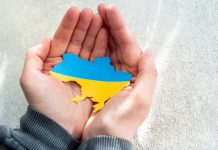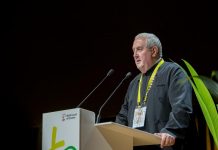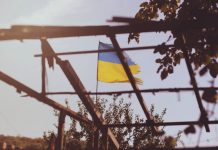After a large fire broke out on 15 April at the Notre Dame cathedral, World Council of Churches (WCC) general secretary Rev. Dr Olav Fykse Tveit expressed shock over the damage to one the most famous landmarks in Paris, and the seat of the archbishop of Paris.
“We grieve over the incalculable loss as the Notre Dame cathedral burns,” said Tveit, “and we pray for all for whom Notre Dame is and represents a spiritual home, particularly during Holy Week.”
Tveit said he especially remembers a 4 December 2015 ecumenical service in which hundreds of people from many nations and confessions, among them pastors, priests, laity, nuns, bishops, archbishops and cardinals, joined in a service for God’s Creation at Notre Dame cathedral in Paris during the United Nations climate conference being held then in the city.
“As we prayed for our common home, the beautiful setting of the cathedral served to draw us even closer together,” recalled Tveit. “As decisions are made about repairing the structure, we will pray for the firefighters who preserved what they could, for those craftspeople who will be doing the repairs, and for those millions of people for whom the cathedral holds so much meaning.”
Many across the world – politicians, those who have visited the cathedral, religious leaders and others – expressed sympathy and dismay at the damage. Both the spire and roof of the cathedral collapsed and flames also damaged one of the building’s two towers.
Pope Francis was among those who expressed a sense of solidarity and said he was praying for the Catholics of France, as well as for all the people of Paris.
The Notre Dame Cathedral is considered by many as the most religiously and architecturally significant cathedral on earth, drawing 13 million visitors a year, even more than the Eiffel Tower.
Rev. Dr Odair Pedroso Mateus, director of the WCC’s Faith and Order Commission, said he, too, shared the shockwave that went through the world.
“The cathedral is a symbol of the foundation of European culture,” he said.
World Council of Churches, oikoumene.org















